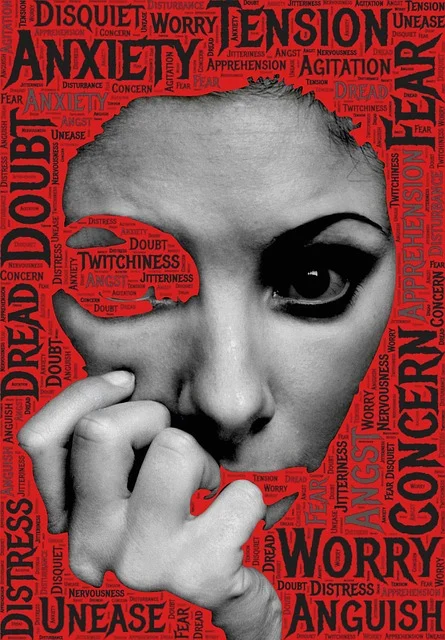Menopause is a natural transition that marks the end of a woman’s reproductive years. It is a stage that comes with many changes, from hot flashes and mood swings to shifts in sleep and energy levels. One of the lesser-discussed but very real aspects of this transition is what many women call “menopause brain”—a mix of brain fog, forgetfulness, and difficulty concentrating.

For women experiencing it, menopause brain can be unsettling. Losing track of thoughts mid-conversation, struggling to remember names, or feeling mentally sluggish can spark fears of early dementia or permanent memory decline. The truth is, while menopause brain can be disruptive, it is usually temporary and manageable. Understanding why it happens, how long it lasts, and what strategies can help makes this stage easier to navigate with confidence.
This article explores menopause brain in depth, covering its causes, symptoms, duration, and effective coping strategies. By the end, you will feel more informed and empowered to manage these changes with clarity.
What is Menopause Brain?
“Menopause brain” is not a medical diagnosis, but rather a phrase used to describe the cognitive symptoms that many women notice during perimenopause and menopause. These symptoms include:
- Memory lapses – forgetting appointments, misplacing items, or struggling to recall details.
- Difficulty concentrating – feeling easily distracted or unable to focus for long periods.
- Mental fog – a sensation of cloudiness or slowed thinking.
- Word-finding issues – pausing to recall familiar names or words.
While these experiences can be frustrating, they are closely tied to the hormonal changes of menopause—particularly the decline of estrogen. Estrogen has a powerful influence on brain function, especially in areas related to memory, mood, and focus. When hormone levels fluctuate, it affects how efficiently the brain processes and recalls information.
Importantly, menopause brain is not the same as dementia or Alzheimer’s disease. Unlike degenerative conditions, menopause brain is usually temporary, with symptoms improving once hormone levels stabilize after menopause.
Each woman’s experience is unique: some barely notice cognitive changes, while others find them disruptive to daily life. Lifestyle, stress, sleep quality, and overall health all play a role in how strongly menopause brain symptoms appear.
What Causes Menopause Brain Fog?
The exact causes of menopause brain fog are multifactorial, involving both hormonal and lifestyle factors. Key contributors include:
1. Hormonal Fluctuations
Estrogen supports brain chemicals like serotonin, dopamine, and acetylcholine, which are essential for memory and mood regulation. When estrogen declines during menopause, these processes are disrupted, leading to forgetfulness and concentration problems.
2. Sleep Disturbances
Hot flashes and night sweats can interfere with restful sleep. Chronic poor sleep is strongly linked to brain fog, fatigue, and slower cognitive performance.
3. Stress and Anxiety
The transition through menopause often overlaps with midlife stressors such as career demands, caregiving, or health changes. Stress hormones like cortisol can further impair memory and focus.
4. Age-Related Changes
Cognitive abilities naturally shift with age. Menopause brain is often a combination of normal aging and hormonal shifts occurring simultaneously.
5. Lifestyle Factors
Poor nutrition, lack of physical activity, or inadequate hydration can make symptoms worse. Conversely, healthy habits can improve resilience against brain fog.
Together, these factors create the “perfect storm” that many women describe as menopause brain.
How Long Does Brain Fog in Menopause Last?
One of the most common concerns is: how long will this last? The answer is that it varies from woman to woman.
For many, brain fog begins in perimenopause—the years leading up to menopause when hormones fluctuate significantly. Symptoms may persist into menopause itself, typically lasting anywhere from a few months to several years.

On average, cognitive symptoms tend to improve within two to five years after the final menstrual cycle, once hormone levels stabilize. However, lifestyle choices, stress, and sleep quality can all affect duration.
The reassuring news is that for most women, menopause brain does not last forever. With time and supportive strategies, mental clarity typically returns.
How to Fix Menopause Brain Fog?
While menopause brain may not disappear overnight, there are many strategies to ease symptoms and support brain health.
1. Prioritize Quality Sleep
- Keep a consistent bedtime and wake time.
- Create a cool, dark, and quiet sleep environment.
- Limit caffeine, alcohol, and screen time before bed.
2. Eat for Brain Health
Nutrition plays a powerful role in cognitive function. Focus on:
- Omega-3 fatty acids (found in fish, walnuts, flaxseeds).
- Antioxidant-rich foods like berries and leafy greens.
- Whole grains for steady energy.
- Staying hydrated throughout the day.
3. Stay Physically Active
Exercise increases blood flow to the brain and supports memory. Aim for:
- Cardio activities like walking, swimming, or cycling.
- Strength training for overall health.
- Mind-body exercises like yoga or tai chi for stress reduction.
4. Train Your Brain
- Crossword puzzles, Sudoku, or memory games.
- Reading or learning new skills.
- Practicing mindfulness and meditation.
5. Manage Stress
- Deep breathing, journaling, or relaxation techniques.
- Setting boundaries and practicing self-care.
- Seeking support from friends, family, or therapists.
6. Consider Medical Options
Some women explore hormone therapy or supplements under medical guidance. These options should be personalized, weighing potential benefits and risks.
The key is consistency. Small daily habits add up, helping restore mental clarity over time.
What Are the Cognitive Symptoms of Menopause?
The cognitive symptoms of menopause are varied, but the most common include:
- Memory lapses – forgetting recent conversations, names, or events.
- Difficulty concentrating – reduced ability to focus on tasks or process new information.
- Slowed thinking – taking longer to organize thoughts or solve problems.
- Word-finding issues – pausing or struggling to recall specific words.
- Mental fatigue – feeling mentally drained after simple tasks.
These symptoms can affect work performance, relationships, and daily routines, which is why recognizing them is important.
How Does Menopause Affect the Brain?
Menopause impacts the brain in several ways, primarily through hormonal changes:
- Estrogen Decline – Estrogen supports memory, mood, and learning. Its reduction leads to noticeable cognitive shifts.
- Neurotransmitter Changes – Lower estrogen levels disrupt serotonin and dopamine, affecting both mood and memory.
- Sleep Cycle Disruptions – Poor sleep directly harms focus, decision-making, and recall.
- Brain Plasticity – The brain adapts over time. While symptoms may appear during menopause, many women regain clarity post-menopause as the brain adjusts.
This shows that menopause affects the brain in both temporary and adaptive ways.
Coping Tips for Daily Life
Even when symptoms are frustrating, practical coping strategies make daily life easier:
- Use calendars, planners, or reminder apps.
- Break tasks into smaller steps.
- Give yourself extra time for important projects.
- Practice self-compassion and patience.
- Seek support through groups or counseling if needed.
These strategies reduce the pressure women often place on themselves and make everyday life more manageable.
When to Seek Professional Help
While menopause brain is usually temporary, there are times when professional support is important. Consider consulting a healthcare provider if you notice:
- Severe memory loss that interferes with daily life.
- Confusion or disorientation.
- Sudden mood changes, depression, or anxiety.
- Symptoms that worsen rather than improve over time.
A professional can rule out other conditions, such as thyroid issues, depression, or early dementia, and provide tailored treatment options.
Conclusion
Menopause brain is a real and common experience for many women. While it can feel unsettling, it is usually temporary and linked to natural hormonal changes. Understanding the causes, symptoms, and strategies for relief can make this stage much more manageable.
The key takeaway is that menopause brain does not define a woman’s intelligence or capabilities. With the right lifestyle habits, coping tools, and support, mental clarity can return and even thrive after menopause.
Every woman’s journey is unique, but knowledge and self-care remain the most powerful tools for navigating menopause brain with confidence.



